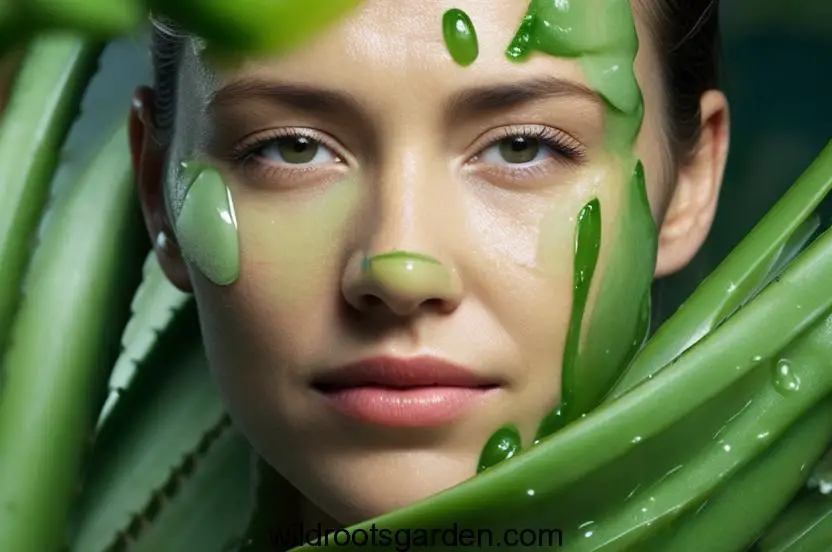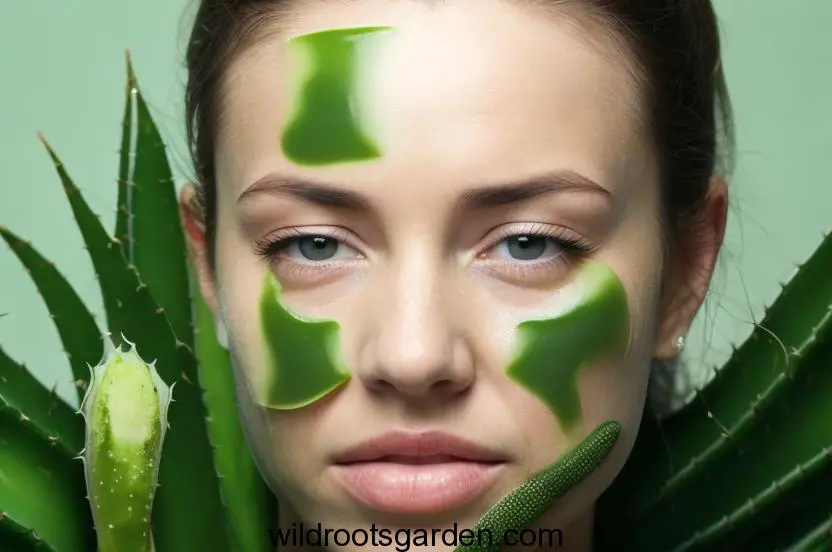Aloe Vera Allergies. This detailed page explains the signs, causes, and treatments for allergies to aloe vera. Discover practical ways to recognize allergy responses and relieve suffering.
With its luscious green leaves and many health advantages, aloe vera is recognized for its skin-soothing abilities. Nevertheless, this seemingly miraculous plant might cause allergic reactions in certain people. Aloe Vera is generally harmless, but it’s important to be aware of any potential allergies and take the necessary precautions. The symptoms, underlying reasons, and practical treatments for Aloe Vera allergies will all be covered in this article, along with expert advice and reliable sources.
Aloe Vera Allergies: Symptoms, Causes, and Remedies
Aloe Vera Allergies: Symptoms, Causes, and Remedies – What is it, and how does it happen? Let’s take a closer look at this topic.
1. Understanding Aloe Vera Allergies

When the immune system interprets specific Aloe Vera chemicals as potentially dangerous substances, aloe vera allergies develop. In order to defend against these deemed risks, the body generates antibodies, which results in an allergic reaction. Although not everyone may develop an allergy to aloe vera, it’s important to be aware of the symptoms if you do.
2. Common Symptoms of Aloe Vera Allergies
When exposed to Aloe Vera, allergic individuals may experience a range of symptoms:
- Skin irritation: Itching, redness, and a rash are common skin reactions to Aloe Vera allergies.
- Swelling: Allergic reactions may cause swelling, especially on the face, lips, tongue, or throat.
- Hives: Raised, itchy welts on the skin may develop after Aloe Vera contact.
- Respiratory issues: Some individuals may experience difficulty breathing or develop a runny nose after exposure.
- Gastrointestinal problems: In severe cases, ingesting Aloe Vera may lead to stomach cramps or diarrhea.
If you suspect an Aloe Vera allergy, discontinue use immediately and consult a healthcare professional for proper evaluation.
3. What Causes Aloe Vera Allergies?

Allergies to aloe vera are mostly brought on by specific chemicals found in the plant. Aloin and anthraquinones are substances that might cause allergic reactions in susceptible people and are present in the latex layer of aloe vera leaves. Moreover, in rare instances, cross-reactivity with other substances or plants might make allergies worse.
4. Risk Factors for Aloe Vera Allergies
While Aloe Vera allergies can affect anyone, certain factors increase the likelihood of developing an allergic reaction:
- Pre-existing Allergies: Individuals with existing allergies to plants in the Liliaceae family, such as garlic or onions, may be more susceptible to Aloe Vera allergies.
- Sensitive Skin: People with sensitive skin are at a higher risk of experiencing skin irritations and allergic reactions.
- Latex Allergy: Those allergic to latex may also be more prone to Aloe Vera allergies due to similar allergens present in both substances.
5. Diagnosing Aloe Vera Allergies

It’s important to see an allergist or dermatologist for a complete diagnosis if you think you might have an allergy to aloe vera. To find out if you have an allergy to aloe vera, the medical professional will perform a thorough evaluation that includes a thorough medical history, skin patch testing, and sometimes blood tests.
6. Treating Aloe Vera Allergies
Avoiding contact with plants and products containing aloe vera is the first step in treating aloe vera allergies. The use of topical corticosteroid creams can ease minor skin responses. Your doctor might suggest desensitization therapy or prescribe antihistamines for allergies that are more severe.
7. Aloe Vera Allergy FAQs
FAQ 1: Can I develop an Aloe Vera allergy over time?
Yes, it is possible to develop an allergy to Aloe Vera over time, even if you’ve used it safely in the past. Allergies can develop due to changes in your immune system or prolonged exposure to Aloe Vera.
FAQ 2: Are all Aloe Vera products the same regarding allergenicity?
No, the allergenicity of Aloe Vera products can vary depending on their processing and formulation. Some products may have lower levels of allergens, making them less likely to trigger allergies.
FAQ 3: Can Aloe Vera allergies be life-threatening?
While most Aloe Vera allergies cause mild to moderate reactions, in rare cases, severe allergies can lead to anaphylaxis, a life-threatening condition that requires immediate medical attention.
FAQ 4: Can I still benefit from Aloe Vera without using it topically?
Yes, if you have an Aloe Vera allergy, you can still enjoy its benefits by opting for Aloe Vera supplements or products that do not require direct contact with the skin.
FAQ 5: Is Aloe Vera allergy the same as contact dermatitis?
Aloe Vera allergy can lead to contact dermatitis, which is the skin’s inflammation upon contact with the allergen. However, contact dermatitis can also be caused by other substances.
FAQ 6: Can I outgrow my Aloe Vera allergy?
In some cases, allergies can subside or lessen over time. If you’ve had an Aloe Vera allergy in the past, consult an allergist to determine if you’ve outgrown it.
Conclusion
Aloe Vera is undoubtedly a versatile plant with numerous benefits, but for some individuals, it can lead to allergic reactions. Being aware of the symptoms, causes, and remedies for Aloe Vera allergies is essential for managing and avoiding discomfort. If you suspect an Aloe Vera allergy, seek professional guidance for proper diagnosis and appropriate treatment. Remember, while Aloe Vera may not be suitable for everyone, there are plenty of other natural remedies and skincare options available to cater to individual needs.

